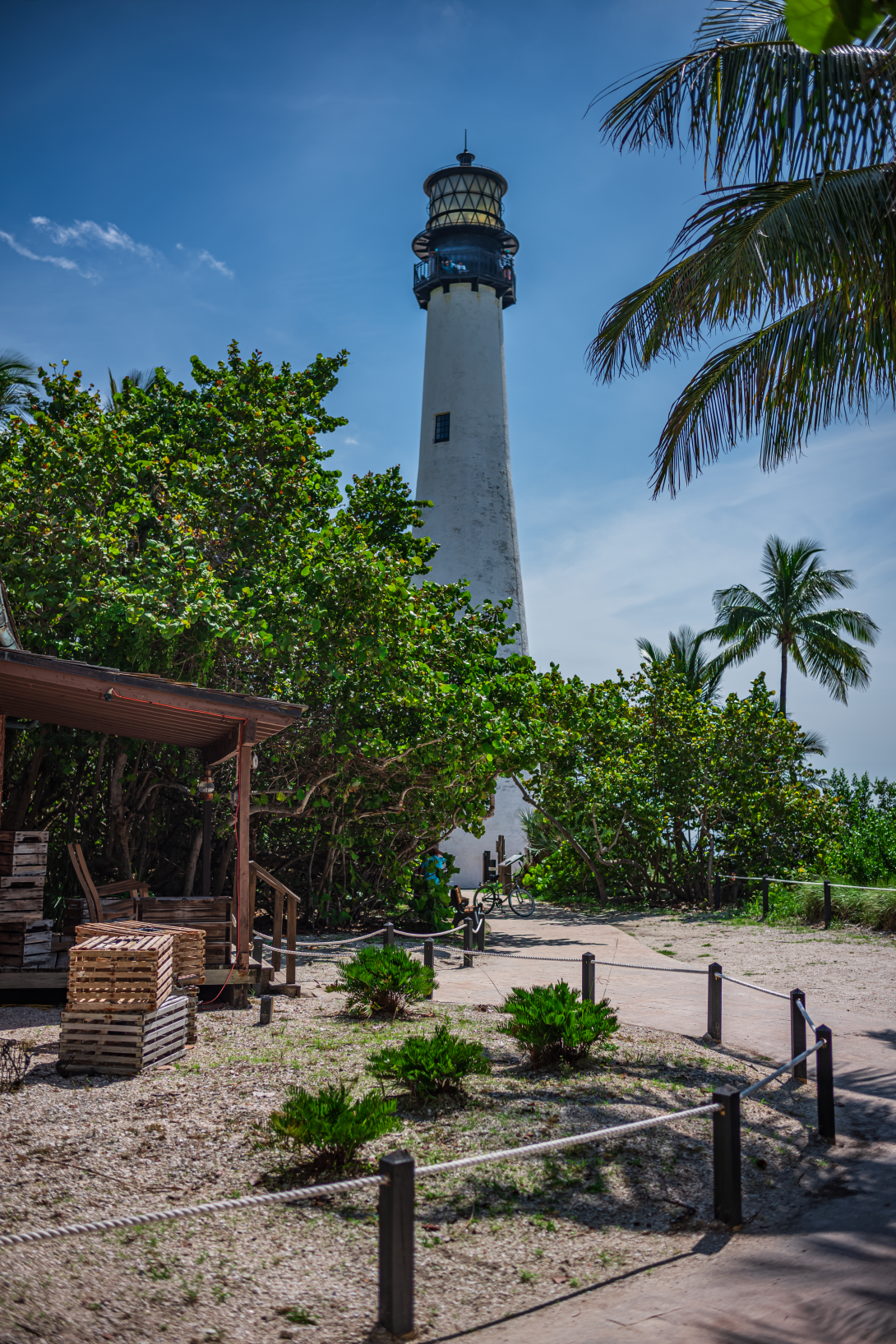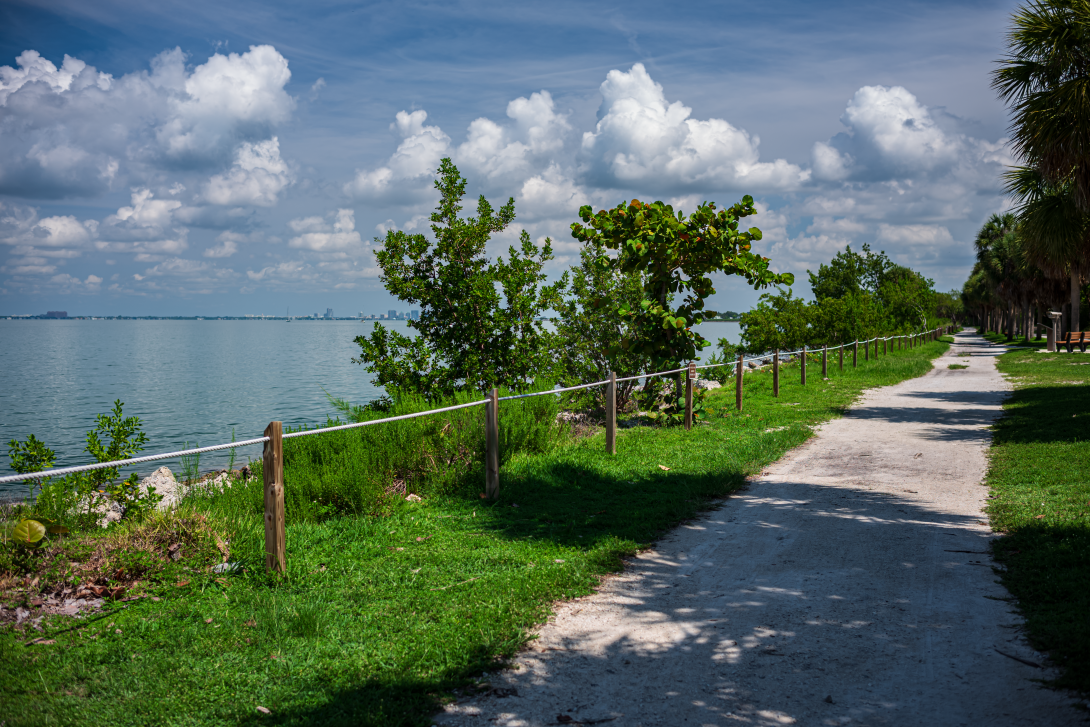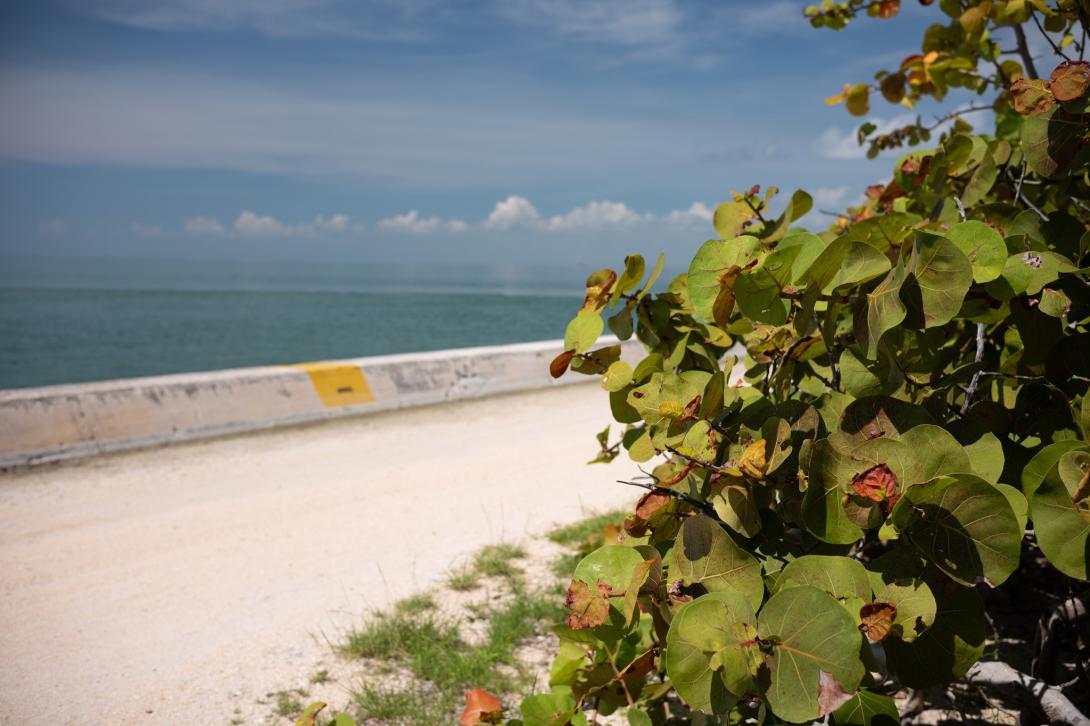Miami-Dade, Monroe
1970
4,163
Florida Aquatic Preserve
Open 24/7
Boating, sailing, paddling, fishing, wildlife viewing, snorkeling, diving
VISITATION INFORMATION
Parking
Parking is dependent on each access location: Bill Baggs Cape Florida State Park, Crandon Marina, Dinner Key Marina and R Hardy Matheson County Preserve.
Boat Access/Ramps
Facilities
The aquatic preserve offers no facilities, but please check each access location for a list of available facilities.
Contact
Griffin Alexander
786-798-4511
Biscayne.Bay@FloridaDEP.gov
HISTORY
Cape Florida Aquatic Preserve was first designated in 1970. It initially encompassed a vast area of submerged lands and islands, stretching offshore from southern Key Biscayne out to Florida state waters, southward to the Monroe County line and northward along the Intracoastal Waterway back to Key Biscayne, including Bill Baggs Cape Florida State Park. However, with the establishment of Biscayne National Monument in 1980 (later expanded and renamed Biscayne National Park), the preserve's acreage was significantly reduced. Today, the preserve exists as a smaller area off the eastern shore of Key Biscayne. Despite its reduced size, the preserve remains a crucial part of Florida's aquatic ecosystem, providing habitat for diverse marine species.

PUBLIC ENGAGEMENT OPPORTUNITIES
Volunteer Opportunities
If you are interested in getting involved with Cape Florida Aquatic Preserve, please email Biscayne.Bay@FloridaDEP.gov or visit the Friends of Biscayne Bay website.
Events
- International Coastal Clean Up: hosted at Bill Baggs Cape Florida State Park annually in September.
- A Second Saturday Park Cleanup: hosted at Bill Baggs Cape Florida State Park every second Saturday of the month.

Educational Opportunities
Educational opportunities can be found at Bill Baggs Cape Florida State Park.
Conservation Efforts
Habitat restoration efforts include shoreline stabilization, coral out-planting and seagrass restoration. Public education about the importance of Biscayne Bay is crucial for ensuring the long-term health of the ecosystem. These conservation efforts aim to preserve the ecological integrity of Biscayne Bay, which is essential for maintaining its biodiversity and economic value.

Ongoing Research
Numerous entities conduct research in Cape Florida Aquatic Preserve including the University of Miami’s Shark Research and Conservation Lab and The Field School.
Partner Groups
- Biscayne National Park
- Florida Fish and Wildlife Conservation Commission
- South Florida Water Management District
- Miami-Dade County's Department of Environmental Resources Management
- Bill Baggs Cape Florida State Park
- Florida International University
- The University of Miami's Rosenstiel School of Marine, Atmospheric, and Earth Science
- The Friends of Biscayne Bay
- Miami Waterkeeper
- VolunteerCleanUp.Org
- Surfrider Miami
Welcome to Biscayne Bay-Cape Florida to Monroe County Line Aquatic Preserve – Miami’s blue heart. Step away from the busy city and immerse yourself in all that nature has to offer. Dive in and meet some of Miami’s favorite locals: manatees, bottlenose dolphins, turtles and the lovely spiny lobster. Explore seagrass flats with Bahamian sea stars or dive on some of the preserve’s patch reefs.